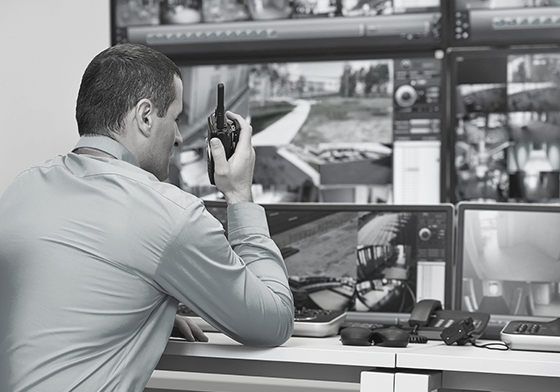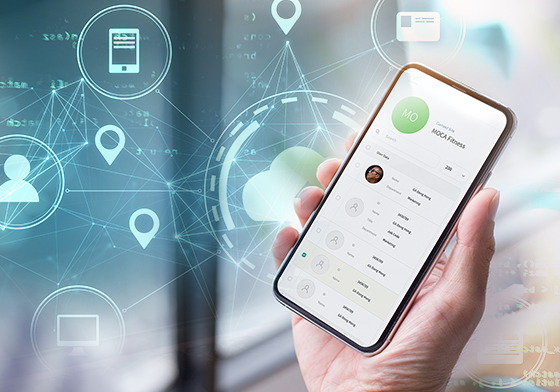- PRODUCTS
- Security Platform
- BioStar X | On-Prem SecurityNEW
- BioStar Air | Cloud Security
- BioStar 2
- Access Control
- Access Control Unit
- Biometric Readers
- RFID Readers
- Mobile Credential
- Peripherals
- Wireless Door Locks
- SOLUTIONS
- SUPPORT
- ABOUT
- device_hubHUB
If you are reading this article, you have probably heard how smart phone door access, also known as Mobile Access Control, makes offices more convenient.
Replacing RFID cards with smartphone apps means employees no longer have to carry separate badges to work. (And how often do we accidentally leave badges in the car or at home?) Digital badges can be integrated into the workplace app employees already use, further improving convenience. Employees can pre-register their guests, and can use their phones to access any company facility they are allowed to enter, rather than juggling multiple cards.
Beyond convenience, Mobile Access Control actually makes offices more secure. Here are the top five ways in which smart phone door access makes offices safer and more secure:
01
No more lost, stolen, or shared cards
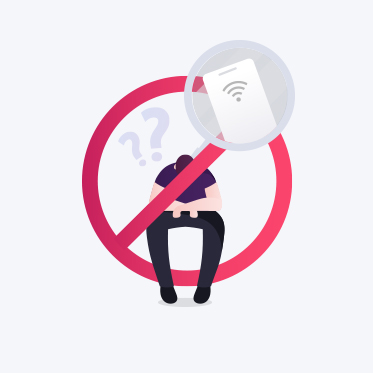
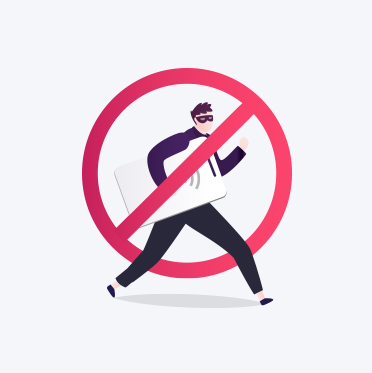
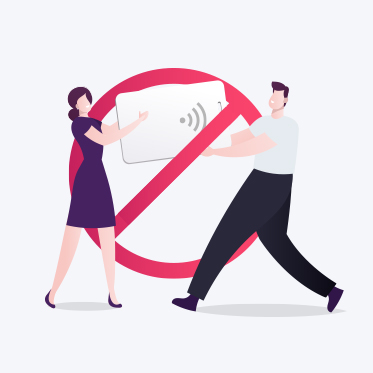
Perhaps the simplest way that Mobile Access Control makes offices more secure is obvious: There are no more physical cards that can be lost or stolen. A physical employee badge with the name of a company printed on it can pose a significant security risk. Thieves can use misplaced cards before the owners even know they are missing.
In one widely reported example, 1,400 security badges went missing from a US airport over a two-year period. These badges provided access to areas including runways and boarding gates.
Mobile access control moves badges to secure, encrypted storage on mobile phones, making them accessible only to the owners. This also cuts down on problems like badge sharing and “buddy punching”, where one employee signs in for a friend as well.
Related News
Hundreds of Security Badges Missing From Atlanta Airport02
Improved visitor management
Visitor registration poses risks to both physical and information security. As mentioned above, RFID badges have a tendency to “walk off” with the people they are issued to, whether by accident or on purpose.
Filling out visitor registration forms takes time, causing back-ups in already-cramped lobbies and putting strangers in close proximity to one another. Beyond this, paper visitor logs mean that anyone entering the office can see who else has also visited, exposing personal information that companies have a responsibility to keep private.
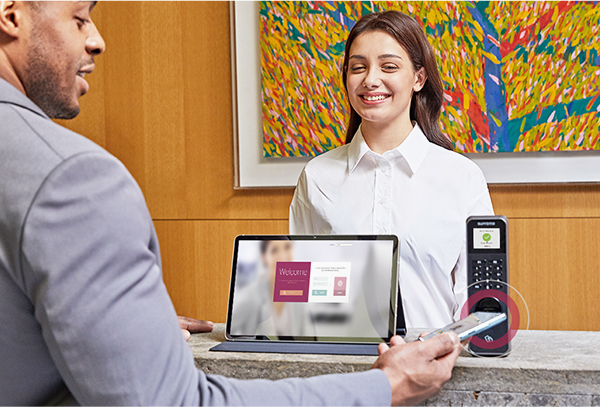
Mobile access control means that all visitors can pre-register before visiting an office and receive their credentials on their phones. They only remain in the lobby long enough to meet their hosts and slap on a visitor sticker. Visitors’ credentials will only give them access to specific areas of a building, and their personal information will be securely stored on encrypted servers, not paper logs.
03
Role based access control, updated automatically
Role based access control means restricting employees to areas of a building they need to be in to do their jobs. In the past, this has meant that administrators have to spend time manually deciding who has access to which areas; a process that is prone to human error and arbitrary decision making
New Mobile Access Control systems can automatically grant or restrict access according to factors like an employee’s department, shift, hybrid work schedule, and security clearance. There is no need to reprogram or replace cards. Administrators can make changes and set parameters for automation in a cloud-based interface like Suprema’s Airfob Portal.
04
Issue and revoke cards remotely
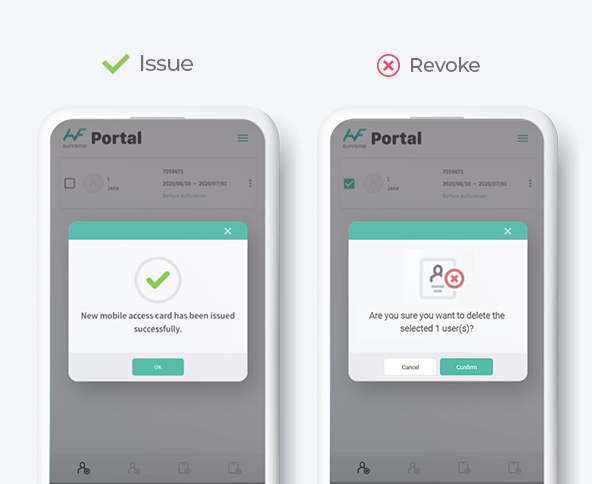
A company is only as secure as its audit trail. With card-based access control systems, issuing and revoking cards can take significant time for the HR, facilities and IT infrastructure departments. Because of this, stacks of returned cards often sit in back rooms waiting to be deactivated in a batch. This creates a security risk because it means some cards may be overlooked. Did Jim return his employee badge when he left the company, or did he hand in an old card for his health club instead?
Moving the process of issuing and revoking mobile credentials to the cloud reduces friction in the process. There is actually no physical card to collect or issue. Cards can be set to expire automatically at the end of an employee’s last day of work at a company. This is even more important as companies increasingly hire freelancers and contractors on a short-term basis.
05
Mobile Plus More
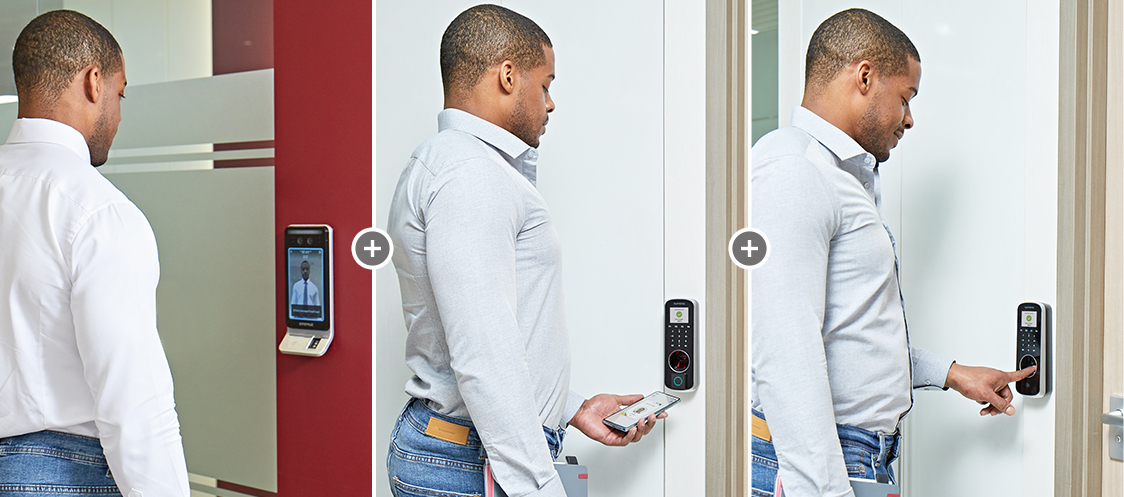
While mobile credentials are more secure than traditional RFID badges, some areas of offices still require more security.
In these cases, access control solution providers allow companies to combine mobile credentials with biometric readers (fingerprint or facial authentication).
Selecting an access control system requires careful consideration of your specific needs and the solutions available. You can learn more about Suprema Mobile Access solutions or for a free consultation.











